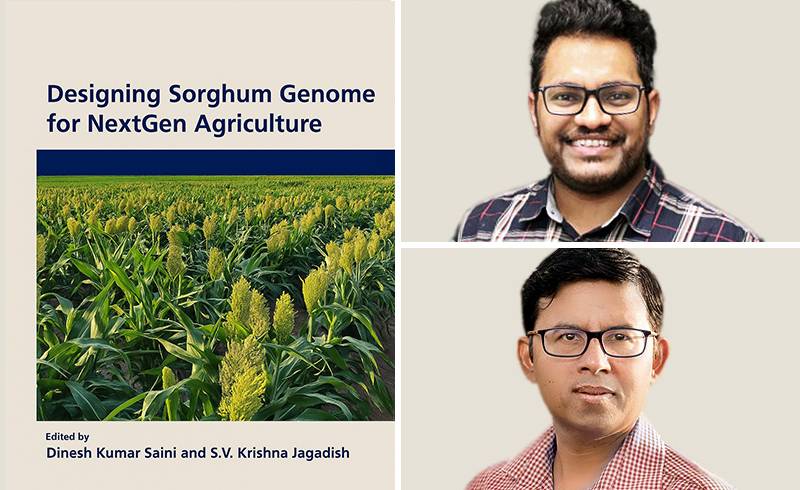
As global temperatures rise and water resources become increasingly strained, plant scientists are turning to an ancient grain with modern promise: sorghum.

In a new volume set to be released this September, Designing Sorghum Genome for NextGen Agriculture, researchers from Texas Tech’s Davis College of Agricultural Sciences & Natural Resources lay out a blueprint for reengineering one of the world’s most climate-resilient crops.
Edited by Dinesh Kumar Saini, a postdoctoral researcher in the Texas Coalition for Sustainable Integrated Systems program (TeCSIS) and Krishna Jagadish, interim chair of Texas Tech’s Department of Plant & Soil Science, the book offers an ambitious, multidisciplinary exploration of how emerging tools in genetics, data science, and crop modeling are being deployed to boost sorghum’s productivity under increasingly tough growing conditions.
The book takes a multidisciplinary approach, integrating diverse strategies to enhance sorghum’s resilience, said Jagadish, who also serves as the college’s Thornton Distinguished Chair and director of both TeCSIS and the Davis College Water Center. It highlights current achievements and outlines future directions to harness sorghum’s genetic potential as a climate-resilient crop for next-generation agriculture.
Saini added the book highlights current achievements and outlines future directions to harness sorghum’s genetic potential as a climate-resilient crop for next-generation agriculture.
Key chapters in the book examine:
- The role of systems biology in accelerating sorghum research;
- Advances in targeted gene editing and mutagenesis;
- Integrative modeling approaches using AI to predict crop responses;
- Sorghum’s global agricultural significance and role in climate adaptation;
- Microbiome-informed strategies to boost tolerance to environmental stresses.
Jagadish, who joined Texas Tech in 2022 after serving as a professor of agronomy at Kansas State University, has long championed climate-smart agriculture. His research teams collaborate with breeders, data scientists, and water conservation experts to develop holistic strategies for sustainable cropping systems across Texas and beyond.
Saini, whose doctoral work at Punjab Agricultural University focused on plant breeding and genetics, brings an international perspective to the challenge. His work centers on investigating the physiological, molecular, and histological mechanisms that promote increased climate resilience and yield potential in grain sorghum.
CONTACT: Krishna Jagadish, Interim Chair and Professor, Department of Plant & Soil Science, Davis College of Agricultural Sciences & Natural Resources, Texas Tech University at (806) 834-7953 or kjagadish.sv@ttu.edu
0709NM25 | PHOTO: Dinesh Kumar Saini (Top) and Krishna Jagadish
